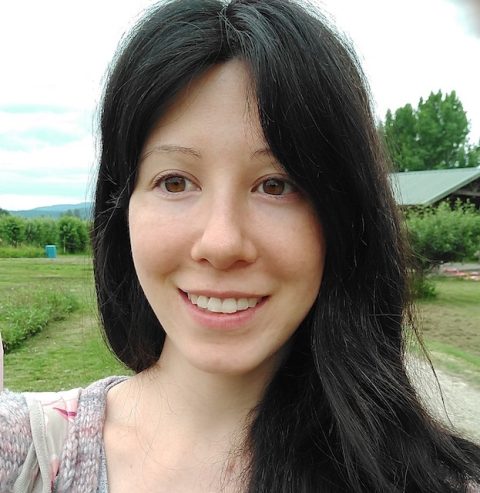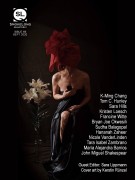What’s the farthest you’ve ever traveled for any type of family occasion and what was the trip like?
It’s shameful, because I live in the States and members of my family have held all sorts of big events, reunions, weddings overseas and I’ve never attended any, despite travelling extensively on my own. I’m just not a family blowout kind of person! So instead of answering your question head-on, I’ll say something I hope isn’t too weird. My maternal grandmother died earlier this year in Hong Kong. I couldn’t attend her funeral because of the pandemic, so I didn’t know how to grieve, and I ended up writing this story. So this story is actually the farthest I’ve ever travelled for a family occasion—and the most surprising thing is that I actually got there.
How would you define what a haunting is and how do you see hauntings working in fiction? What have you been haunted by in the past? What are you haunted by now?
I’ve definitely felt haunted in the past. I missed a lot of opportunities to do certain things because I was too scared. I then had the sense that there was some other, parallel lifetime, in which I did do those things, did take those chances—and if there was some other lifetime, that there had to be some other me. It’s that person, that me, that I now I realize I felt haunted by. But maybe this ties into how I’ve always thought of a haunting—that it isn’t something that happens to people, it doesn’t come from some external source. It’s just them, some carved-out piece of themselves that they tried to throw away but still sticks a little, or that they deny, or that they can’t bear to see or grapple with. There’s a bit of that in this story, the narrator understanding at the end that there is no ghost, or if there is, it’s her, because she’s fading.
That’s not always how it is in fiction, of course. Sometimes it’s just like okay someone’s dead, and now they’re see-through and still hanging round. And that can be really well done. But in a lot of my favorite ghost stories, the real haunting originates within.
How close are you with the people-of-people who populate your family life? Are there any who stand out in particular?
The ones who’ve always stood out in my mind are the ones who are absent. The secret ones. For example, my grandmother’s young brother and his wife, whom I’ve never met, are believed to have done something terrible, committed an unthinkable crime, decades ago in Taiwan. When I was a kid they were always referred to in this weird furtive way—like, they’ve been deliberately written out of the family history but at the same time, because of that, they’re now inseparable from it.
Another example: My maternal grandfather had a whole other family, wife, kids, in China, before the Communist Revolution, that he was forced to leave behind forever. (That’s a story for another day!) Whoever they are, they probably don’t know and don’t care that I exist, but (and maybe this is the historian in me) somehow these are the people-of-people that most intrigue me, the ones that are just on the periphery. Where the connection is so slender it’s almost not there—it’s like it’s in the dashes, right: People-of-people.
To answer your first question, I’m not particularly close to anyone beyond my immediate family and a few aunts and cousins. Should have attended those blowouts … .
One of my favorite techniques here is the structural repetition, which builds tension from the start until being interrupted at the end. Each of the long paragraphs is punctuated by short one or two sentence paragraphs until the final paragraph is left to resonate on its own. I love this choice. How long had you been writing fiction before you became more intentional about structuring a story like this, or using repetition to build tension?
Thank you. As a fiction writer, I started out working on a novel manuscript, and to begin with I always thought of the structure as just the backbone of the story, not anything romantic or powerful. It’s only this past year when I started reading and writing flash fiction that I began to see what the structure can actually do. I’ve begun to notice the aesthetic of a story as well, the way the writing looks on the page, the shape it takes. I started out just experimenting to see what I like or don’t, and although I’m still experimenting, I’ve found that the more I develop my own taste, the more intentional I can be. Now it’s bleeding into my novel manuscript as well!
If the ending of a story is the start of something new, what do you think happens after this story ends?
I have a lot of hope for the narrator. She’s sort of living her life through a veil: Everything’s sort of dreamy and surreal, and maybe she prefers it that way, so she doesn’t have to own it, own the choices she’s made, but I think at the end she gets to a kernel of truth. I do think she’ll have to divorce her husband, though, in order to fully realize herself. I’m a little worried about how that will go for her since he’s an attorney!



 The core workshop of SmokeLong Fitness is all in writing, so you can take part from anywhere at anytime. We are excited about creating a supportive, consistent and structured environment for flash writers to work on their craft in a community. We are thrilled and proud to say that our workshop participants have won, placed, or been listed in every major flash competition. Community works.
The core workshop of SmokeLong Fitness is all in writing, so you can take part from anywhere at anytime. We are excited about creating a supportive, consistent and structured environment for flash writers to work on their craft in a community. We are thrilled and proud to say that our workshop participants have won, placed, or been listed in every major flash competition. Community works.